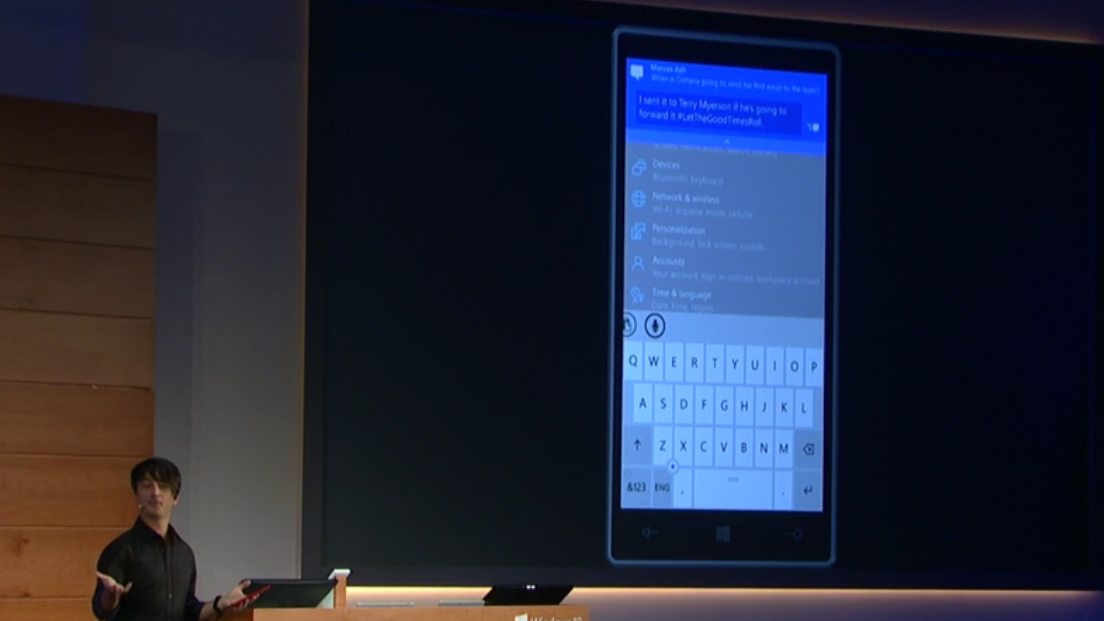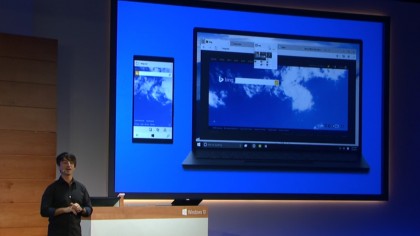Is Office enough to drive enterprise adoption of Windows 10 smartphones?
Can Office save a Windows without Google?

Along with the the launch of Windows 10 for smartphones, Microsoft announced it is also overhauling its Office suite for Windows Phone, bringing parity to the desktop versions of Word, Excel, PowerPoint, and Outlook. It remains to be seen if Microsoft's strategy is enough, as these changes still don't address the biggest shortcoming of Windows Phone: the lack of apps.
- Everything we know about Windows 10
For business users, there's a lot to love about Microsoft's tight integration within its ecosystem. Action Center allows you to dismiss notifications on your phone and have that mirrored on your PC, while Continuum lets you switch usage modes between desktop and tablet for hybrid form factor devices. However, where it matters most for business customers is the availability of enterprise applications and services.
Where's the Google cloud support?
Rich word editing, change tracking, and a full-feature Office ribbon are coming to the mobile Office suite, and all this is great if you live within Microsoft's cloud. In reality, many smaller businesses and a number of large enterprises have switched to Google's more price conscious Google Apps for Work as an Office replacement, and Microsoft's presentation made no mention of integration with Google's cloud services.
We haven't heard about Google cloud support for Docs, Sheets, Slides, and Drive within Office for Windows smartphones. If Microsoft doesn't add support for Google Apps, Windows 10 for smartphones might not be able to break into the enterprise space given that there is first-party support on rival iOS and Android platforms.
The lack of Google support on Windows smartphones is nothing new as Google doesn't offer any of its app, including YouTube, for Microsoft's platform. However, in the case of Office, Microsoft doesn't appear to be making an effort to help its business customers use its phone and service to connect to Google's cloud.
Playing catchup
Many of the Office for Windows 10 features that make Windows Phone a capable laptop replacement are already present on competing platforms. iOS and Android users have long enjoyed voice dictation, wireless printing, and the ability to connect to wireless displays.

Though Office is still a staple of many businesses, Microsoft's slow move to mobile have benefited the adoption of competing Office replacement apps. Apple launched its Pages, Numbers, and Keynote as a viable alternative to Office on iOS before Microsoft debuted its suite for iPhones and iPads. Google also broadened its Google Drive service by launching its competing Docs, Sheets, and Slides apps.
Are you a pro? Subscribe to our newsletter
Sign up to the TechRadar Pro newsletter to get all the top news, opinion, features and guidance your business needs to succeed!
Not only is Microsoft trying to play catchup in terms of the features that Office delivers to Windows 10 on smartphones, it is also trying to woo back users it lost on mobile to Android and iOS, many of which may be using Office competitors on non-Windows smartphones and tablets.
Office for mobile
Though the new touch-centric Office experience will debut first for Microsoft's smartphone platform, Office is already available on other platforms. Additionally, on rival platforms, there are third-party alternatives that will let you view, create, and edit Office documents and also tap into Google, Dropbox, and other cloud services.
The Windows ecosystem
In addition to Google's absence, the Windows ecosystem also lacks many apps that are useful to businesses. Enterprise messaging services Slack and HipChat do not have official apps in the Windows Phone Store. The situation is similar with other titles.
This may improve with Universal apps as developers could reach a larger audience by coding a single app and distributing across Windows, including phones, tablets, Xbox, and the new teleconferencing Surface Hub.
If Microsoft's play to gain Windows smartphone adoption is Office, it will need to deliver more value to enterprise customers. Google cloud integration could be a welcome beginning for those businesses that prefer to stay within Microsoft's ecosystem but have transitioned to Google Apps.